
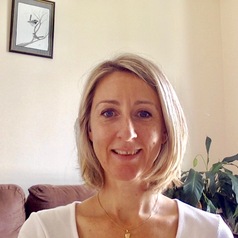
Kirsti Mills
Research Assistant, Queensland University of Technology
As a person with lived-experience, I am passionate about protecting and supporting people who are at risk of, or have experienced violence, abuse and trauma to lead a life that is safe and meaningful to them. I graduated Queensland University of Technology (QUT) December 2022 having completed a Bachelor of Justice (Criminology & Policing). In addition to my studies, I collaborated with a team to co-author a large state of knowledge report on violence perpetration, and tutored first-year justice students with the Oodgeroo Unit at QUT. Previous work involves project management in the advertising industry.
I value kindness, growth, curiosity and determination.
Less ![]()
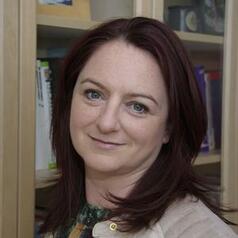
Kirstie Ball
Professor of Management, University of St Andrews
PhD, 'Computer Based Monitoring in the UK service industry', Aston University, 1996
MSc (Eng) Work Design and Ergonomics, University of Birmingham 1993
LLB (Hons) Law and Business Studies, University of Birmingham 1992
Less ![]()
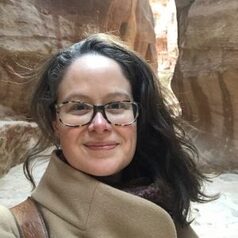
Kirstin Anderson
Lecturer in Criminology, Edinburgh Napier University
Kirstin is currently working on a number of research projects including, ‘Examining the health and well-being of older people with cognitive frailty and dementia in prison’, funded by the Dunhill Medical Trust; ‘Stories of Social Justice in a time of State Building’, funded by the British Academy and ‘Communication through music: Mothers and babies in prison’, funded by the Royal Society of Edinburgh.
She completed her PhD at the University of Edinburgh, her thesis Music Education and Experience in Scottish Prisons contributes to the developing research on the benefits of arts provision for people in custody and provides a baseline for further work on music education in Scottish prisons.
Kirstin taught music at Polmont Young Offenders Institution in Scotland, designed a workbook on teaching music in prisons as part of a Knowledge Transfer grant from the University of Edinburgh and was the lead researcher on the national project Inspiring Change in 2010. She has worked as a researcher with the Scottish Prison Service, the Scottish Centre for Crime and Justice Research, the Institute for Music in Human and Social Development and the Scottish Human Rights Commission.
Less ![]()
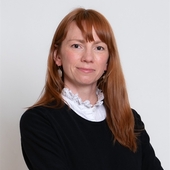
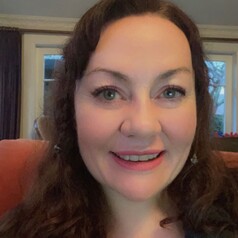
Kirsty Ross
Associate Professor and Senior Clinical Psychologist, Massey University
I am an Associate Professor and the Head of the School of Psychology at Massey University, and I teach in our clinical psychology programme. I am also a senior clinical psychologist, specializing in working with children, youth and families. I have worked in mental health - particularly anxiety and trauma - as well as long-term and life-limiting health conditions (particularly pediatric and youth cancer) for over twenty years. Translating psychology into everyday practices that people can use in their lives to enhance their wellbeing and relationships is something I am passionate about.
Less ![]()
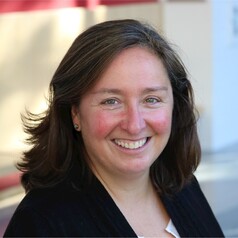
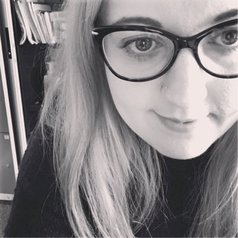
Kirsty Teague
Senior Lecturer in Criminology, University of Derby
Kirsty Teague is a Senior Lecturer in Criminology at the University of Derby. Her research focuses on the rehabilitation and reintegration of individuals with sexual convictions post-release from prison. Kirsty’s professional activities are aligned with this focus, with Kirsty being a Trustee of the Safer Living Foundation. Kirsty’s work is informed by public criminology, with a particular a commitment to social justice.
Less ![]()
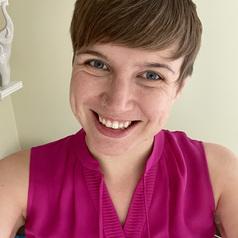
Kirsty-Louise Cameron
Lecturer in Criminology, Leeds Beckett University
I am a Lecturer in Criminology at Leeds Beckett University, with research interests related to antisocial behaviour, social housing, intersectionality, vulnerability and welfare conditionality. My teaching relates to criminal justice, intersectionality and research methods. My PhD research at the University of York is related to antisocial behaviour, using a newly developed theoretical framework of vulnerability to understand alleged perpetrator experiences of antisocial behaviour. This longitudinal research followed 15 social housing tenants over 6-9 months whilst they were alleged to be engaged in antisocial behaviour. I also have an MA in Social Research and BA Hons in Social Policy at the University of York.
Prior to starting my PhD, I worked in the social housing sector for 8 years across customer service and housing officer roles. Industry experience of antisocial behaviour and the management of social housing tenants solidified my interest in the perspectives and experiences of social tenants and, specifically, alleged perpetrators of antisocial behaviour who are rarely surveyed by their social housing providers and are often seen as a hard-to-reach population by academic researchers.
Less ![]()
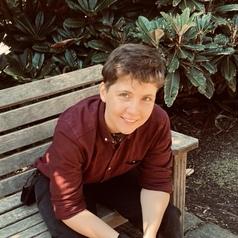
Kit Colliver
Research Associate at York Law School, University of York
Kit Colliver is a Research Associate at the York Law School, University of York. Their research interests include housing and homelessness, local government, and normative perspectives in social policy.
Less ![]()
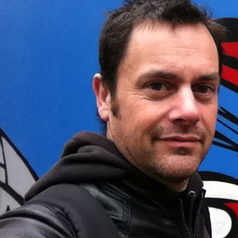
Kit Messham-Muir
I am an art theorist, educator, researcher and presenter, based in Newcastle, Australia.
I grew up in Wales and moved to Australia in 1990 to study art at the University of Sydney. I graduated with a Bachelor of Visual Arts Honours Class 1 in 1994, and in 2000 was awarded a PhD in Art History and Theory from the University of New South Wales.
I regularly contribute to The Conversation, as well as publish academic research. In 2015, I published 'Double War: Shaun Gladwell, visual culture and the wars in Afghanistan and Iraq', Thames & Hudson.
Since 1997, I've taught art history at universities in Australia and Hong Kong, and I'm currently a Senior Lecturer in Art History at the University of Newcastle, Australia. I've won multiple awards for my teaching and I direct the StudioCrasher video project.
Less ![]()
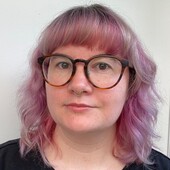
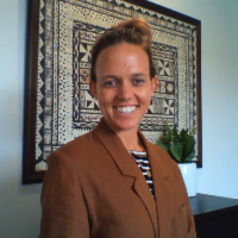
Kitty-Rose Foley
Senior Lecturer, Faculty of Health, Southern Cross University
I am an AHPRA registered paediatric Occupational Therapist and a Senior Lecturer undertaking teaching and research activities. My research program is focused on the health and wellbeing of people with intellectual and developmental disabilities. I completed my PhD at the Telethon Kids Institute in Perth, WA. Following this, I undertook a Postdoctoral Research Fellowship at UNSW Sydney which involved co-leading the development of the Australian Longitudinal Study of Autism in Adults (ALSAA).
I am passionate about conducting research which is co-developed and co-produced with the clients we are aiming to serve. This includes working with the Autistic community in research development and implementation. My research was utilised in the Royal Commission into Violence, Abuse, Neglect, and Exploitations of People with Disability as evidence, and also was cited within the National Autism Strategy. Conducting research which leads to real world impact and changes is a key priority and focus of my research.
Less ![]()
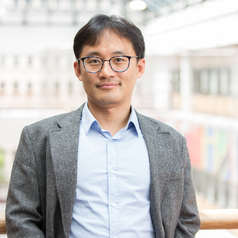
KJ (Kyoung Jin) Choi
Area Chair and Associate Professor of Finance, Haskayne School of Business, University of Calgary
KJ (Kyoung Jin) Choi is an Assosiate Professor of Finance at the Haskayne School of Business, University of Calgary. He joined the faculty in July 2011. KJ holds a PhD in Economics from Washington University in St. Louis, a PhD in Mathematics from Korea Advanced Institute of Science and Technology (KAIST), and a BS in Mathematics from Pohang University in Science and Technology (POSTECH). Previously he has held the position at the Korea Institute for Advanced Studies (KIAS).
KJ's diverse research interests span the realms of real and financial investments, Fintech with a focus on blockchain technology, and Central Bank Digital Currency (CBDC). His academic pursuits also extend to dynamic contracting and consumption analysis.
In his recent studies, KJ has delved into the intricacies of optimal staking and investment strategies within cryptocurrency markets. He has contributed to the field of mechanism design as applied to decentralized platforms, as well as the domain of algorithmic stablecoins on blockchain platforms. Furthermore, KJ has examined the potential implications stemming from the introduction of CBDCs on the broader financial landscape. His contributions extend beyond theoretical research, as he actively participated in the Model X project with the Bank of Canada. His involvement centered on shaping the architectural framework for the Canadian CBDC. Additionally, KJ's work has explored the nuanced interplay between heterogeneous consumption patterns and their influence on asset returns. His prior work has been published at various economics, business, and finance journals.
Less ![]()
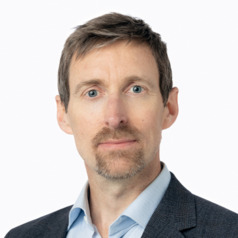
Kjetil Selvik
Research Professor in political science, Norwegian Institute of International Affairs
Kjetil Selvik is Research Professor in NUPI’s Research Group on Peace, Conflict and Development. He holds a PhD in political science from Sciences Po in Paris and works on struggles over states and regimes in the Middle East.
Selvik har previously worked as researcher at Fafo and at the Chr. Michelsen Institute (CMI) and been Adjunct Associate Professor at the Department of Comparative Politics, University of Bergen, and at the Department of Culture Studies and Oriental Language, University of Oslo.
Less ![]()
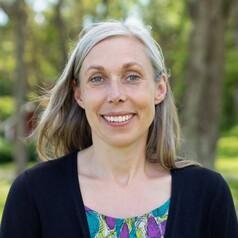
Klara Fischer
Associate professor in Rural Development, Swedish University of Agricultural Sciences
Food production is at the same time central to humanity and intimately connected with many of the serious challenges to global climate and ecologies. My research interests concern how ideas and practices regarding today's sustainability challenges in food production and natural resource management are negotiated and turned into practice, and in particular how marginalised groups are affected. While the biodiversity crisis and the climate crisis are both real and urgent to address, we must explore how the burden for needed changes is distributed, between the global North and South, within countries and local communities, and between humans and the environment. Asking these questions is key to my research. Geographically most of my research is located in Africa (esp. Uganda & South Africa) where I study how agricultural and natural resource policies and wider development agendas affect African smallholders.
Less ![]()
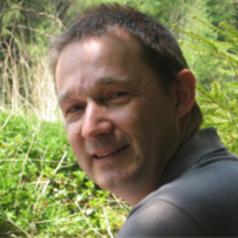
Klaus Bachmann
Professor of Political Science, SWPS University of Social Sciences and Humanities
Klaus Bachmann, professor of political science at the University of Social Sciences and Humanities, board member of the Stefan Batory Foundation, president of the board of the Foundation for European Studies (FEPS) in Wrocław, in the years 1988-2001 foreign correspondent for German, Austrian and Swiss media in Poland, Ukraine, Belarus and Lithuania, between 2001-2004 correspondent in Brussels. A graduate of universal history and the history of Eastern Europe at the University in Heidelberg and Vienna, in 2000 he defended his doctoral thesis at the University of Warsaw on Polish-Ukrainian relations in Galicia before the First World War. In 2004, he published his habilitation on the European Convention. In the years 2004-2009 assistant professor, then professor at the University of Wrocław, since 2006 professor at the University of Social Sciences and Humanities and from 2013 professor of social sciences. He specializes in the “Transitional Justice” area, European integration (the treaty reform and decision-making mechanisms) and modern history. Author (together with Thomas Sparrow-Botero and Peter Lambertz) of the monograph “When Justice Meets Politics. Independence and Autonomy of Ad Hoc International Criminal Tribunals”, Frankfurt/M.: Peter Lang 2013.
Less ![]()
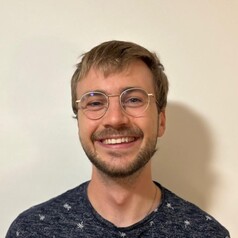
Klaus Groebner
PhD Candidate, Digital Publics Program, Queensland University of Technology
Less ![]()
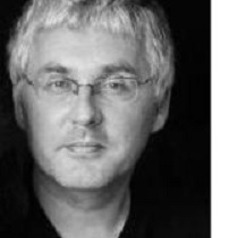
Klaus Hubacek
Professor of Science, Technology and Society , University of Groningen
Klaus Hubacek is a Professor in Science, Technology and Society at the University of Groningen, the Netherlands. He is chair of Integrated Research on Energy, Environment and Society (IREES) and chair of the board of Energy and Sustainability Research Institute Groningen (ESRIG). Klaus is currently also a visiting professor in geographical sciences at the University of Maryland, College Park. Previously he worked or held visiting positions at the University of Leeds, UK, the Chinese Academy of Sciences, Beijing Normal University, China, the University of Cambridge, UK, and the International Institute for Applied Systems Analysis (IIASA), Austria.
His research focus is on conceptualizing and modeling the interactions between human and environmental systems. Klaus has been recently involved in building an integrated climate assessment model funded by Horizon 2020 and on forecasting carbon emissions funded by NASA. Klaus has published over 200 research articles in peer-reviewed journals on topics such as climate change adaptation and mitigation, participatory modeling, management of ecosystems services, land use change and governance.
He is recognized as a highly cited researcher with multiple papers in the top 1% by citations. Klaus conducted studies for a number of national agencies in Austria, the Czech Republic, China, Japan, Spain, the UK, and the U.S., and international institutions such as the World Bank and the Interamerican Development Bank (IADB). Klaus was a lead author of the most recent 6th assessment report of the UN's Intergovernmental Panel on Climate Change (IPCC) leading chapters on Behavior and Consumption-based Emissions.
Less ![]()
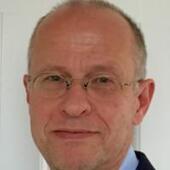
Klaus Bruhn Jensenn
Full Professor in the Department of Communication, University of Copenhagen
Less ![]()
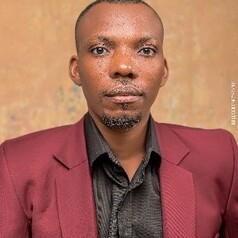
Koffi Améssou Adaba
Enseignant et chercheur en sociologie politique, Université de Lomé
Titulaire d’un doctorat en sociologie politique, Dr Koffi Améssou ADABA est chercheur en
sciences sociales. Sa thèse de doctorat a porté sur le sujet crucial de la démocratisation, des
institutions de contrôle social et de la crise de citoyenneté au Togo. Koffi est aussi détenteur d’un
Diplôme Universitaire (DU) en « Gouvernance de l’Etat et management des crises » à la Faculté
de Droit de l’Université de Lomé. Chercheur au Center for Research and Opinion Polls (CROP)
(partenaire national du réseau Afrobarometer au Togo), Koffi est enseignant vacataire et membre
du Laboratoire Dynamique Spatiale et Intégration Régionale (LaDySIR) de l’Université de Lomé.
Il est également enseignant à l’Ecole Supérieure de l’Informatique et de Gestion (ESIG - Global
Successs) au Togo. Ses travaux portent sur la gouvernance, la démocratie, l’intégration régionale,
la cohésion sociale, les inégalités sociales et la communication politique. Il est l'auteur de plusieurs
articles scientifiques.
Less ![]()
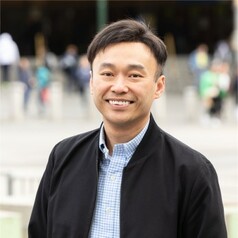
Kok-Leong Ong
Director, Enterprise AI and Data Analytics Hub, RMIT University
Kok-Leong Ong is currently a Professor of AI & Analytics in the College of Business & Law, RMIT University. His research focuses on analytics and machine learning translation into practice within different business verticals, and the development of new techniques as required to meet individual business needs. He was one of the members that started Australia's first degree in Business Analytics back in 2013. In January 2021, he became one of the four Australia-based academics to be named the Leading Data Academics by CDO Magazine, a US-based publication.
Less ![]()
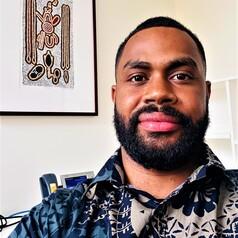
Kolaia Raisele
PhD candidate, youth leadership in the Pacific, La Trobe University
I am Kolaia Raisele, originally from the Fiji Islands. I am currently undertaking my PhD at La Trobe University's Department of Social Inquiry in Melbourne, Australia, where my research focuses on the complexities of youth leadership and civic engagement in the Pacific Islands. My academic journey began at the University of Canterbury, where I completed my Bachelor of Arts, majoring in Anthropology and Political Science, between 2013 and 2015. This early stage sparked my love for Pacific Studies and guided my academic and career path.
Driven by a deep-seated interest in the Pacific region, I pursued further studies at the University of the South Pacific, earning a Postgraduate Diploma in Pacific Studies from 2017 to 2018. My commitment to this field led me to complete a Master of Arts in Pacific Studies at the same institution between 2019 and 2020. Recognizing the importance of effective teaching in academia, I also obtained a Postgraduate Certificate in Tertiary Teaching during 2020-2021, equipping me with the essential skills to educate and inspire others in my field.
In August 2022, I embarked on my PhD journey at La Trobe University. This significant step in my academic career has been both challenging and rewarding, allowing me to further explore and contribute to the understanding of youth leadership and civic engagement within the Pacific Islands. Since March 2023, I have also been serving as a Casual Academic in the Department of Social Inquiry at La Trobe University. This role has provided me with the invaluable opportunity to engage with students and colleagues, fostering a collaborative and dynamic academic environment.
My academic and professional qualifications reflect my unwavering dedication to the study of the Pacific Islands, with a special focus on the pivotal role of youth in shaping their communities. Through my research and teaching, I aim to make a meaningful contribution to both the academic community and the wider society, driven by a belief in the transformative power of engaged scholarship.
Less ![]()
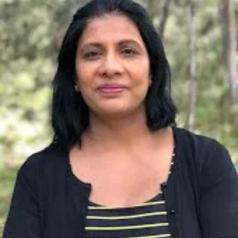
Kompal Sinha
Associate Professor, Department of Economics, Macquarie University
I am an Associate Professor at the Department of Economics, Macquarie University, Sydney, Australia. I am also an Editor of Journal of Population Economics (Springer). I served as a College of Experts at the Australian Research Council (ARC) over 2021 - 2023.
My research analyses issues at the intersection of health economics and population economics. My research uses microeconometric methods to study the role of preference heterogeneity in individual decision making and its impact on the design of economic policy. My research has focused on developed and developing countries including Australia, United Kingdom, India, China, Indonesia, Vietnam, Botswana, Bangladesh, Mongolia and Combodia. My research has appeared in peer-reviewed journals including Health Economics, Journal of Economic Behaviour and Organisation, American Journal for Agricultural Economics, Social Science and Medicine, Macroeconomic Dynamics, Review of Income and Wealth, Journal of Biosocial Sciences, Value in Health, British Medical Bulletin, Feminist Economics, Ear and Hearing among other.
I serve as Editor for the Journal of Population Economics, and am affiliated with the Centre of Development Economics and Sustainability at Monash University and Global Labor Organization (GLO) where I lead a research cluster Development, Health, Inequality and Behavior.
Less ![]()
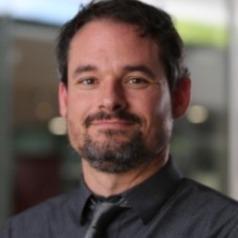
Konden Smith Hansen
Lecturer of Religious Studies, University of Arizona
Konden Smith Hansen (Ph.D. in Religious Studies, Arizona State University) is Lecturer of Religious Studies at the University of Arizona, specializing in American Religious History, with a particular expertise in Mormon Studies. He is the author of the award winning Frontier Religion: Mormons in America, 1857-1907 (University of Utah Press, 2019) and co-editor of the award winning The Reed Smoot Hearings: The Investigation of a Mormon Senator and the Making of an American Religion (Utah State University Press, 2021). He currently teaches courses on American religious history, film and religion, Mormonism, world religions, and religious violence.
Less ![]()
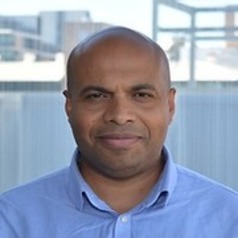
Kondo-Francois Aguey-Zinsou
Professor of Chemistry, University of Sydney
Francois Aguey-Zinsou is Professor of Chemistry at the University of Sydney, where he leads the MERLin (Materials Energy Research Laboratory in nanoscale) group– School of Chemistry and with 20 years experience, he is one of the leading experts in hydrogen technologies,advising many key stakeholders.
Less ![]()
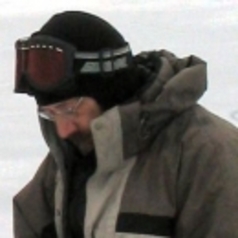
Konrad Gajewski
Professor, Geography, Environment and Geomatics, L’Université d’Ottawa/University of Ottawa
Researcher in climate change / paleoclimatology for over 40 years. Currently professor in the Department of Geography, Environment and Geomatics (and cross appointed in Biology and Earth Sciences), and director of the Laboratory for Paleoclimatology and Climatology. Researched in the fields of (a) late-Quaternary paleoclimatology / paleoecology / paleolimnology, (b) quantitative paleoclimate reconstruction from fossil data (c) environmental data analysis & synthesis. Emphasis on Arctic and Boreal regions, as well as continental to global syntheses. Extensive field experience across the Canadian North, and elsewhere. Teaching in Climatology & Climate Change, BIogeography, and Environmental Data Analysis.
Less ![]()
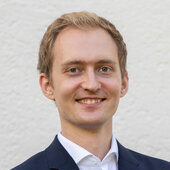
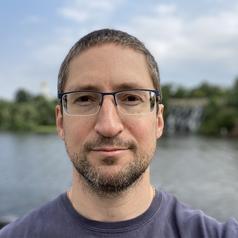
Konstantin Blyuss
Reader in Mathematics, University of Sussex
I am an applied mathematician interested in using mathematics to understand and solve problems in biology, medicine and engineering.
My research is mainly concentrated in the following areas –
Mathematical biology and epidemiology: the dynamics and synchronization of multi-strain infectious diseases; symmetric dynamics and equivariant bifurcations; effects of latency and temporary immunity; and adaptive dynamics and sympatric speciation.
Mathematical modelling in immunology and autoimmunity: antigenic variation and interactions of antigenic variants; tunable activation thresholds and pathogen-induced autoimmunity.
Delay differential equations: time-delayed feedback control; stability and synchronization in networks with time-delayed connections; distributed time delays; numerical bifurcation analysis and simulations.
Less ![]()
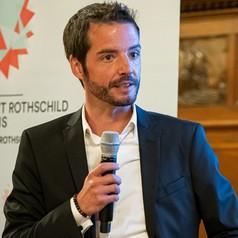
Konstantin M. Wacker
Assistant professor of economics, University of Groningen
Konstantin M. Wacker is an assistant professor at University of Groningen, Netherlands. He has worked and consulted for the World Bank, the International Monetary Fund, the European Central Bank, UNU-WIDER, and the Austrian Central Bank. His research investigates questions of macroeconomic development and globalization, particularly foreign direct investment and export quality.
Less ![]()
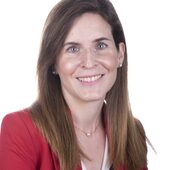
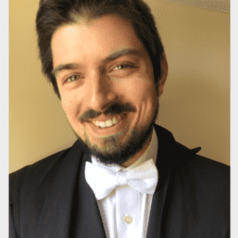
Konstantine Panegyres
McKenzie Postdoctoral Fellow, Historical and Philosophical Studies, The University of Melbourne
Originally from Western Australia, I received my doctorate from the University of Oxford in 2022 as a Clarendon Scholar. My current work is about health in the ancient world, the subject of an upcoming book.
I am also involved in the editing of unpublished papyri from the Greco-Roman period.
Less ![]()
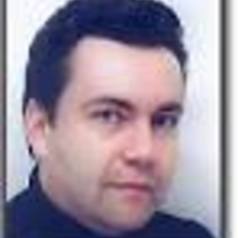
Konstantinos Dimopoulos
Professor in Particle Cosmology, Lancaster University
I am a Professor in Particle Cosmology in the Physics Department of Lancaster University. My research is in Theoretical Cosmology and, in particular, in the physics of Cosmic Inflation. Inflation is a period of superluminal expansion of space that occurred a tiny fraction of a second after the Big Bang.
It is responsible for making the observable Universe large and uniform. Also, it generated the small variations (perturbations) in the density of matter that gave rise to the formation of galaxies. These cosmological perturbations reflect themselves onto the Cosmic Microwave Background (CMB) radiation by causing small temperature variations.
Models of inflation are based on fundamental physics like quantum field theory, supersymmetry, supergravity and string theory. The characteristics of cosmological perturbations which are observed in the CMB can tell apart models of inflation and, therefore, can constrain fundamental theories.
Thus, theoretical cosmologists, like myself, use the Early universe as a giant laboratory to test fundamental physics, well beyond Earth based experiments, like particle accelerators.
Less ![]()
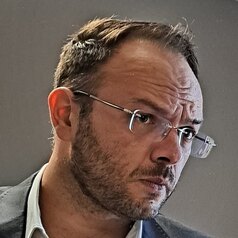
Konstantinos D. Melas
Postdoctoral Researcher in Supply Chain Finance, University of Western Macedonia
Konstantinos Melas is a Post-doctoral researcher in Supply Chain Finance at the University of Western Macedonia (Kastoria, Greece), and a Programme leader of Business programmes at Metropolitan College (Thessaloniki, Greece). His research interests cover maritime economics, commodity markets, logistics and corporate finance. He has published his papers, in established refereed journals, such as, International Economics, Maritime Economics & Logistics, Review of Behavioral Finance, among others. He holds a Ph.D. in Commerce, Finance and Shipping from Cyprus University of Technology, a M.Sc. in International Accounting and Finance from City University, London and a B.Sc. in Economics from Aristotle University of Thessaloniki. Before joining the academia, he has worked in junior managerial positions in the shipping and the asset management sectors.
Less ![]()
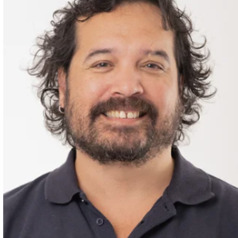
Kootsy Canuto
Associate Professor in Aboriginal and Torres Strait Islander Male Health & Wellbeing, Flinders University
Less ![]()
- Market Data























